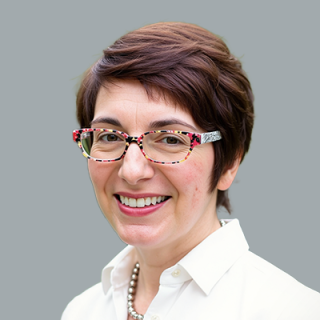Blog
Financial Accounting and Reporting for SPACs: Tips from the Experts
September has been a busy month in the SPAC market. New IPO filings are coming to the Securities and Exchange Commission (SEC), and new deals are being announced and closed. It's great to see this kind of activity after such a long pause.
We’ll focus on some things SPAC issuers and deal teams are doing differently for this SPAC 4.0 phase, especially in the area of financial statement readiness and accounting. Here are highlights from my conversation with Jenn Calabrese and Alison Yablonowitz of Calabrese Consulting, a leading accounting and financial reporting services firm in the SPAC market.
You can watch the entire conversation here.
A Look at the Current SPAC Market
Yelena Dunaevsky: IPO filings have been beefed up with the additional disclosures the SEC is demanding and have been moving smoothly through the SEC review process.
From the risk perspective, I have not noted any major new issues or cases being brought against SPACs prior to the merger, which translates into a favorable directors & officers (D&O) insurance market, better terms for SPAC teams, and lower premiums for our clients.
Jenn Calabrese: There are a few issues from the accounting perspective, some of which are still legacy issues, like high redemption rates. And that does cause concern since they put pressure on companies to find alternative financing.
Another issue concerns SEC oversight and regulations. The SEC has started to look at the S-1 process, which is the pre-IPO process, as well as the de-SPAC process. Conflicts of interest seem to be high on the SEC's list.
The SEC also is focusing on syndicated deals as they become more prevalent. In a syndicated deal, the sponsor doesn't put in as much risk capital in the private placement, so there is more of an investment by other nonaffiliated or third-party investors. The SEC has posed a few disclosure questions in those syndicated deals. It might be that those questions are the SEC's very subtle way of saying they're not sure if they like the structure, but it is hard to say.
Yelena Dunaevsky: It might be also that with the syndicated structures being fairly new, the SEC is not used to them and that is why it is asking more questions. But we will see down the road in a few months how this plays out.
Jenn Calabrese: Deal structures are also becoming more creative. For example, banker's fees and payment schedules are becoming more flexible. In terms of warrants, they are treated as equity in 99% of our deals. That helps in terms of the accounting for the SPACs and the go-forward entities.
Tips for Business Combinations
Alison Yablonowitz: Many people would agree that the biggest hurdle is getting through that first audit. A lot of these companies have never been audited under PCAOB (Public Company Accounting Oversight Board) standards and some finance teams going into a de-SPAC transaction don't understand or don't appreciate the volume of effort it takes to get through that first audit, both internally and from the auditors.
It is more about getting the auditors what they need to get through this audit, having the time and commitment internally from the company to get through that audit process, and being realistic about the time it takes to get it done—more so than about technical accounting issues.
If you're thinking about a public transaction, whether it be a de-SPAC or an IPO, it's never too soon to get your books in order. It's helpful to get a specialist involved who has gone through this process before.
From the technical accounting perspective, it is the way these companies received their financing in the past that becomes technically challenging—if, for example, they have convertible notes or they have preferred stock, or it could be the way that they've done their cap structure to date. All of that really needs to get analyzed and evaluated from an accounting perspective.
When you look at the SPAC and target as a collective group, the most successful ones have a strong working relationship between both parties. However, high redemption rates often result in ancillary contracts for financing. We're constantly asking, "Have you signed any other agreements?" We often have to go through the technical accounting analysis—whether it's on the target side or the SPAC side—and it can get extremely complicated.
Shifts in SPAC Market Demographics and Industries
Yelena Dunaevsky: I'm seeing more SPAC IPOs being driven by seasoned issuers who have done this before and are coming back to the market.
Jenn Calabrese: I agree. More of the seasoned sponsor teams or SPAC teams are coming back in 2024. But even those who are on the newer side are better educated on the product itself.
Alison Yablonowitz: We've been getting more operating companies interested in doing deals on the energy side—things that are good for the environment or innovative products to help the environment.
The other area we see a lot of is artificial intelligence (AI), including data mining companies and data analytics companies. We're also seeing actual mining companies—oil and gold—in the market now, which is interesting. And a few biotechs in trials, specifically in Asia, are trying to get to the US, which is interesting right now.
Yelena Dunaevsky: From the insurance underwriter's perspective, I would say crypto and cannabis are still problematic. And the underwriters are getting nervous about AI. I assume the SEC will take a close look at anything AI-related, judging by some of the SEC's recent commentary.
Alison Yablonowitz: In terms of jurisdictions, US-based companies have a more efficient jurisdiction process. We are working with several companies based in Asia or South Africa. The process is definitely longer.
Predictions for the Coming Months
Jenn Calabrese: In terms of IPOs, the market has definitely opened up in 2024. It'll never be like it was before, but we will continue to have more SPACs coming up for the rest of this year and into 2025. Of course, this trend is contingent on the market, federal rates, and the election.
Alison Yablonowitz: There are not as many new de-SPAC deals for us. We're just finishing off many of the ones that haven't retired or liquidated. We're hopeful we'll see more as these SPACs do IPOs. We think 2025 will be a good year from the de-SPAC side.
Jenn Calabrese: The SPAC product will be elevated because older SPACs will be replaced by more seasoned and more educated SPAC teams who are looking for a better-quality target.
Yelena Dunaevsky: The better quality you have, the fewer issues, the fewer lawsuits, the fewer problems from the regulators. All of that translates into better insurance coverage and better terms, which is what we want for our clients. I am looking forward to this new phase of the SPAC market for the rest of the year and into 2025.
Expert Tips for New SPAC Teams
Jenn Calabrese: Don't be afraid to surround yourself with people who are smarter than you. Get yourself a seasoned team that is knowledgeable in the product and knows what they're doing.
Alison Yablonowitz: It's never too early to start if you're an operating company and you're thinking about doing a capital markets transaction. Be realistic about how long it takes and get started today.
Yelena Dunaevsky: People often begin with outlandish expectations about timelines and coverage terms. You need to have an adviser who is brave enough to give you realistic advice and share their expertise, and you need to be grounded enough to listen to them.
Author
Table of Contents









